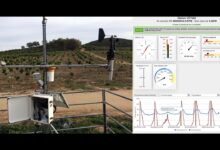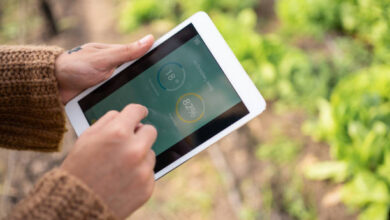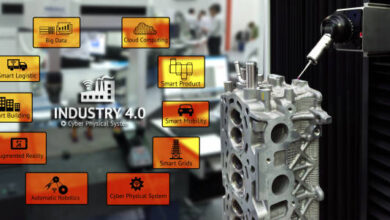how IoT is used in transport and logistics:(2024)

Revolutionizing Transport and Logistics: The Impact of IoT
how IoT is used in transport and logistics: The Transport and Logistics sector has witnessed a transformative wave of technological innovation, and at the forefront of this transformation lies the Internet of Things (IoT). IoT is revolutionizing the way goods are transported, tracked, and managed. In this article, we will delve into the applications and advantages of IoT in transport and logistics. EnoughInfo.net
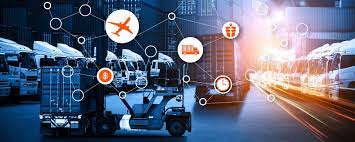
What is IoT in Transportation & Logistics
In the transportation and logistics sector, the Internet of Things is sometimes referred to as telematics, which is the core technology underlying fleet management and tracking software. Secure cellular networks can be used to send vital information to a web-based software platform via data capture equipment mounted on cars or mobile assets. How To Protect IoT Devices From Hackers(All You Need To Know)
IoT in Fleet Management
Real-Time Tracking
One of the most significant advantages of IoT in logistics is real-time tracking. IoT-enabled sensors and GPS devices installed in vehicles and cargo containers provide constant location updates. This helps in monitoring the movement of goods, ensuring timely deliveries, and improving route optimization.
Predictive Maintenance
IoT sensors can collect data on vehicle performance, engine health, and various components. With predictive maintenance, fleet managers can anticipate maintenance needs, reduce vehicle downtime, and extend the lifespan of their assets. How to Implement AI In Ethics and Governance:(The Ultimate Guide)
Fuel Efficiency
IoT devices can monitor fuel consumption and driver behavior, such as excessive idling or speeding. This data is invaluable for optimizing fuel efficiency and reducing operational costs.
Supply Chain Management
Inventory Control
IoT technology allows for real-time tracking of inventory levels. Smart shelves, RFID tags, and sensors help companies maintain accurate stock levels and reduce the risk of stockouts or overstocking.
Asset Monitoring
IoT extends beyond tracking vehicles; it also involves tracking valuable assets within the supply chain, such as shipping containers and cargo. This ensures that assets are not misplaced or stolen, enhancing security.
Cold Chain Management
In the food and pharmaceutical industries, temperature-sensitive goods need to be transported under strict conditions.
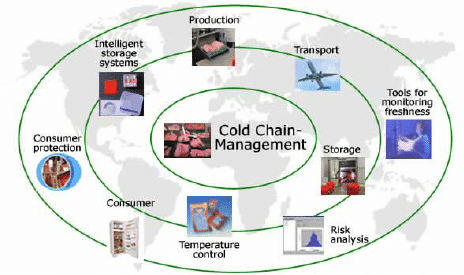
IoT sensors can monitor and report temperature variations, ensuring that products remain in optimal condition throughout their journey.
Last-Mile Delivery
Improved Delivery Accuracy
IoT aids in improving last-mile delivery efficiency. By providing real-time information about the location of delivery vehicles and expected delivery times, customers receive accurate updates and can plan accordingly.
Smart Lockers and Drones
Companies are experimenting with IoT-controlled smart lockers for secure, contactless deliveries. Drones equipped with IoT technology are also being used for deliveries in hard-to-reach areas or during emergencies.
Safety and Compliance
Driver Safety
IoT technology can enhance driver safety by monitoring driver behavior, such as fatigue and distractions. This data helps companies enforce safe driving practices and reduce accidents.
Regulatory Compliance
The transport and logistics industry is heavily regulated. IoT can assist in ensuring compliance with laws and standards by monitoring parameters like vehicle emissions, driver working hours, and cargo weight limits.
Environmental Sustainability
Reduced Emissions
IoT helps companies minimize their carbon footprint by optimizing routes, reducing idle times, and implementing eco-friendly driving practices. This contributes to reducing emissions and aligning with environmental goals.
Challenges and Concerns
While IoT has revolutionized the transport and logistics industry, it also presents several challenges and concerns:
- Security: As with any technology, IoT is vulnerable to cyber threats. Companies must invest in robust cybersecurity measures to protect their systems and data.
- Privacy: Collecting data from IoT devices raises privacy concerns. Striking a balance between data collection for operational efficiency and respecting individual privacy is crucial.
- Data Management: The vast amounts of data generated by IoT devices require effective data management strategies to derive actionable insights.
- Integration: Many companies are still in the process of integrating IoT into their existing systems and workflows, which can be complex and costly. How To Build AI-Driven Marketing Automation Systems
In conclusion,
IoT is playing a pivotal role in reshaping the transport and logistics industry. From fleet management to last-mile delivery, IoT’s real-time tracking, predictive analytics, and data-driven insights offer improved efficiency, safety, and customer satisfaction. As technology continues to advance, it is clear that IoT will remain a driving force in the evolution of this critical sector. https://enoughinfo.com/how-to-clean-a-leather-steering-wheel/



